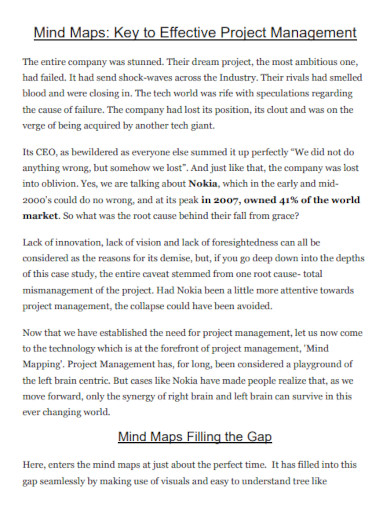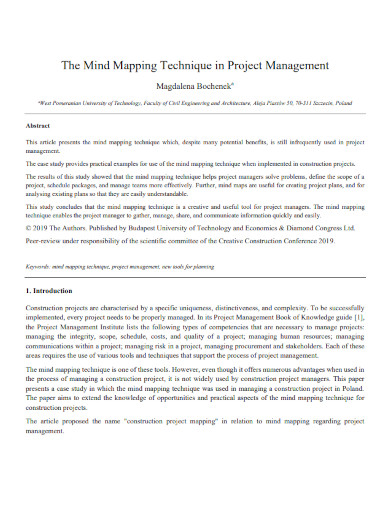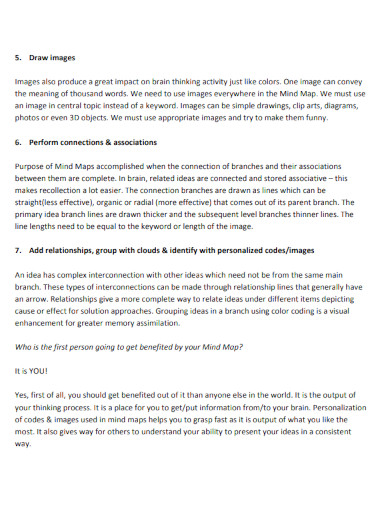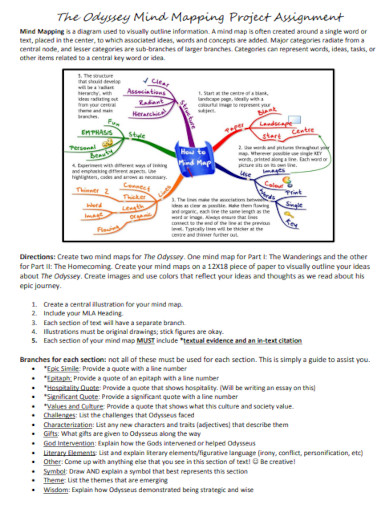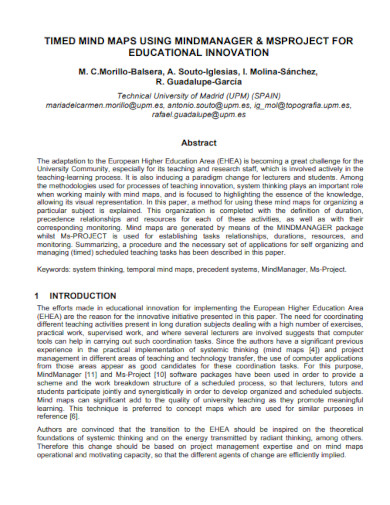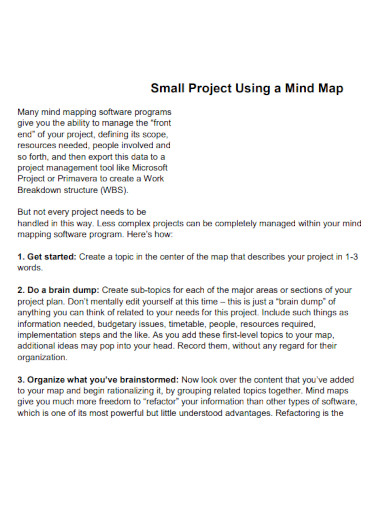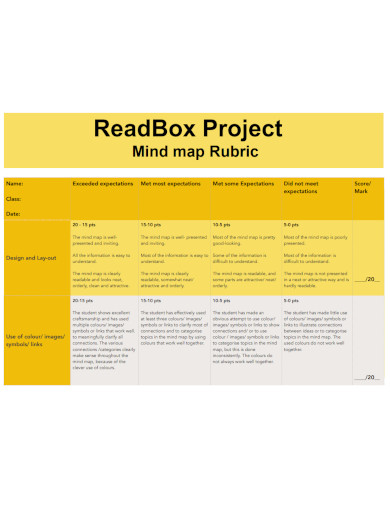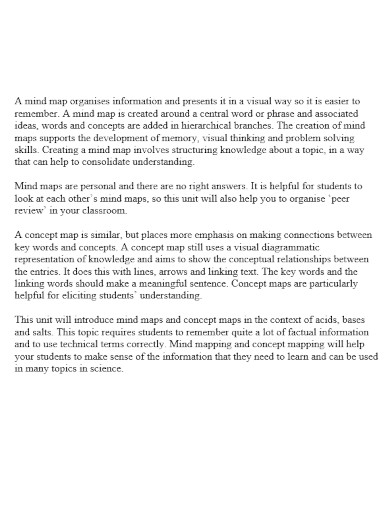Throughout the project lifecycle, project managers need to process large amounts of information. From collecting project requirements and setting up a team to tracking the progress of the project and reporting—information gathering and organizing is a part of every aspect of project management. It could easily get overwhelming. How do you effectively process all of the data without losing track of the big picture—your project? Mind maps can help you do it. On top of that, mind mapping may be a great way to facilitate effective meetings, visualize the project scope and find solutions to different challenges you face at work. In this blog post, you’ll learn how to create mind maps and use them in your project management processes.
10+ Project Mindmap Samples
1. Team Project Mind Map Template
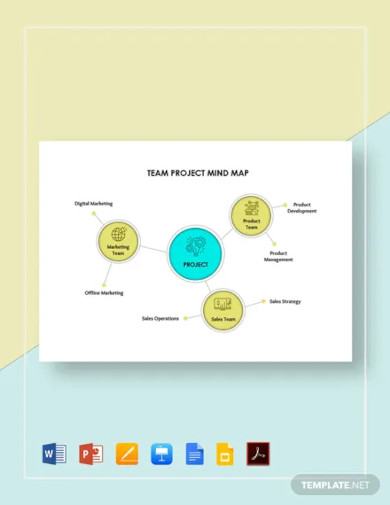
2. Software Project Mind Map Template
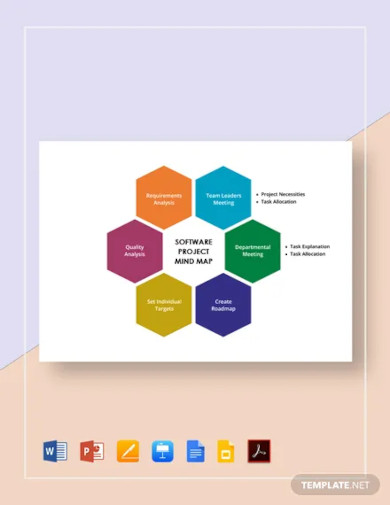
3. Research Project Mind Map Template
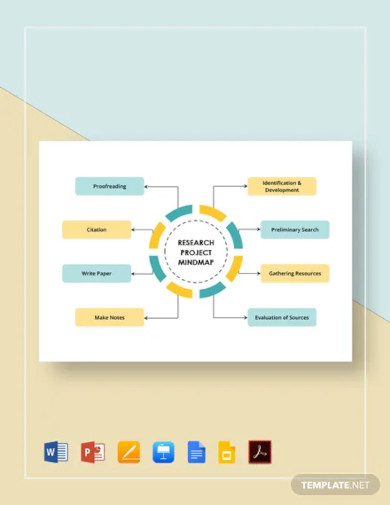
4. Project Management Mindmap
5. Project Mindmap Technique
6. Project Mind Mapping Software
7. Mind Mapping Project Assignment
8. Standard Project Mindmap
9. Small Project Mindmap
10. Project Mindmap Rubric
11. Project Mindmap in DOC
What is a Mindmap?
Essentially, a mind map is a visual way to organize information. It looks like a diagram, with a central idea placed, well, in the center of the canvas. Thick branches labeled with keywords are growing from that central element with thinner branches growing from them, and so on. Words or doodles written next to the branches represent subtopics of the main keywords.
How to Use a Mind Map for Project Management?
Managers can leverage the benefits of project management mind maps throughout the lifecycle of a project. Here are just a few ideas.
1. Collect project requirements
Use a mind map to break projects into smaller project components. For each component, work with technical and decision-making stakeholders to add requirements to your mind map. With Lucidchart, you can have everyone edit the mind map together during a meeting, or separately to accommodate busy schedules.
2. Taking notes
During work meetings, take notes using mind maps. Jot down the main idea of the meeting, and then add branches with ideas, questions, and main points as the meeting progresses. Taking notes with mind maps rather than a bullet list requires the listener to engage with the material, increasing understanding and recall.
3. Presenting
Turn your project management mind maps into presentations. As opposed to making a presentation that organizes ideas linearly, the organic flow of thoughts in a mind map allows you to adjust your presentation according to the response of your audience. Focus on areas of interest and skip over points that are not engaging listeners. Try using Lucidchart’s presentation mode to turn your next project management mind map into a slide deck.
4. Store information
Mind maps organize content topically. Therefore, when built with a web-based mind map tool such as Lucidchart, they function ideally as a central repository of information. Store links, files, graphics, and colleague contact information all sorted by topic. Because this mind map lives in Lucidchart, you can share it with others that may need access to your files. They can open the document to find what they need every time.
5. Whiteboard/brainstorm
Ideate with your team using mind maps. Whether you are trying to solve a problem or come up with a new project, sitting down together and throwing ideas on a board is one of the best ways to tackle productivity freezes. Lucidchart supports multiple editors in a single document, meaning that everyone can contribute to a brainstorming mind map while one person organizes ideas into groups.
6. To-do lists
Mind mapping a to-do list is a skill that can increase personal and team productivity. Think through all of the pieces of a project and then all of the steps that must be taken to accomplish each piece. Once you have mind mapped all of your to-dos, you can rank them by hierarchy of importance in a list. Starting with a mind map before making your prioritized list ensures that no important tasks are forgotten. Likewise, it’s easier to objectively prioritize when all of your tasks are in front of you rather than trying to prioritize from the beginning.
FAQs
Why using mindmaps is important?
Studies have shown that mind maps produce a number of positive effects among users. For example, mind maps:
- Improve critical thinking and creativity.
- Promote idea generation in groups.
- Help with problem solving.
- Improve learning and understanding of concepts.
These effects are especially beneficial for project managers. Project management mind maps can help teams that are roadblocked to think critically and problem solve. They can be a valuable aspect of brainstorming a new million dollar idea. When starting a new venture, project management mind maps can provide needed context in a way that is understandable to all stakeholders. Creativity, problem solving, idea generation, and group understanding are all benefits that universally facilitate the work of project managers.
How to create a mindmap?
- Record all of your ideas before you worry too much about formatting and organization. This action helps to prevent writer’s block.
- For complicated mind maps built in Lucidchart, use multiple layers to filter content, maintaining a simple and visually accessible diagram.
- Use curved lines, colors, and images throughout. These features make your mind maps more exciting and more engaging for your brain.
Related Posts
Sample Excuse Letter for School
Feature Writing Samples
FREE 14+ Sample Music Concert Proposal Templates in MS Word | Google Docs | Pages | PDF
FREE 10+ Security Guard Contract Samples in PDF | MS Word
FREE 10+ Assurance Agreement Samples In MS Word | Google Docs | Apple Pages | PDF
FREE 10+ Option to Purchase Agreement Samples in MS Word | Apple Pages | PDF
FREE 26+ Curriculum Form Samples in MS Word | PDF
FREE 20+ Cleaning Service Proposal Samples in PDF | MS Word
FREE 29+ Sample Loan Application Form Templates in MS Word | PDF
FREE 10+ Event Venue Contract Samples in PDF | MS Word | Pages | Google Docs
FREE 10+ SBAR Samples in PDF | DOC
FREE 12+ Music Band Contract Templates in PDF | MS Word
FREE 10+ HVAC Maintenance Contract Samples in PDF | MS Word
FREE 10+ Social Media Marketing Contract Samples in MS Word | PDF
FREE 10+ Wholesale Assignment Contract Samples in PDF

